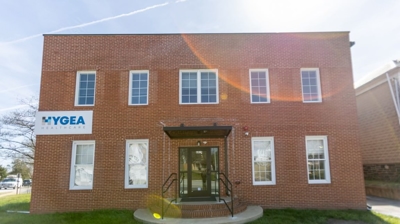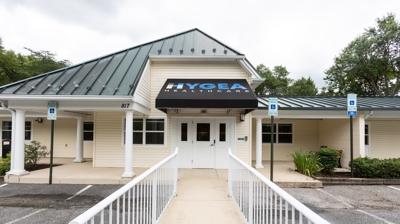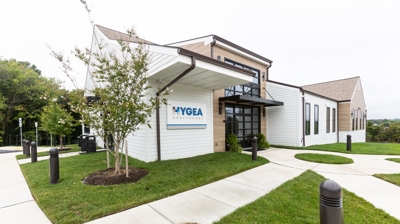Types of Substance Use Disorders
Substance use disorders (SUDs) are complex conditions characterized by the continued use of substances despite harmful consequences. According to the latest data, nearly 48.5 million Americans (16.7% of the population aged 12 and older) experienced a substance use disorder in the past year. [1] Each substance affects the brain differently, though all impact the brain’s reward system.
Alcohol Use Disorder
Alcohol use disorder (AUD) affects approximately 10.2% of Americans 12 and older. [2] This chronic brain disorder is characterized by an impaired ability to stop or control alcohol use despite adverse social, occupational, or health consequences.
Key Characteristics:
- Drinking more or longer than intended
- Unsuccessful attempts to cut down
- Spending significant time obtaining, using, or recovering from alcohol
- Experiencing withdrawal symptoms when not drinking
- Developing tolerance (needing more alcohol for the same effect)
Alcohol withdrawal can be life-threatening, with symptoms ranging from tremors and anxiety to seizures and delirium tremens. Medically supervised detoxification is often necessary for those with severe AUD.
Opioid Use Disorder
Opioid use disorder has reached epidemic proportions in the United States. Approximately 8.6 million Americans reported misusing prescription opioids in 2023, and an estimated 3-12% of people treated with opioids for chronic pain develop an addiction. [3]
Common Opioids:
- Prescription medications (oxycodone, hydrocodone, morphine)
- Heroin
- Synthetic opioids (fentanyl, carfentanil)
Opioid withdrawal, while rarely life-threatening, produces intense physical symptoms including muscle aches, restlessness, anxiety, lacrimation, runny nose, sweating, diarrhea, nausea, and vomiting. Medication-assisted treatment (MAT) has proven highly effective for opioid use disorder.
Stimulant Use Disorder
Stimulant use disorders involve substances that increase alertness, attention, and energy. According to recent data, stimulant-involved overdose deaths have been rising dramatically, with unprecedented increases in recent years. [4]
Common Stimulants:
- Cocaine
- Methamphetamine
- Prescription stimulants (Adderall, Ritalin)
Stimulant withdrawal typically produces fatigue, depression, increased appetite, and disturbed sleep patterns. Unlike alcohol or opioids, there are currently no FDA-approved medications specifically for stimulant use disorder.
Other Substance Use Disorders
Cannabis Use Disorder
Affects approximately 4% of adults, with higher rates among adolescents and young adults. Symptoms include cravings, tolerance, and continued use despite negative consequences.
Sedative, Hypnotic, or Anxiolytic Use Disorder
Involves medications like benzodiazepines and barbiturates. Withdrawal can be life-threatening and similar to alcohol withdrawal.
Hallucinogen Use Disorder
Involves substances like LSD, psilocybin, and PCP. These substances alter perception, mood, and cognitive processes.
Treatment Approaches
Treatment must be tailored to the specific substance and individual needs. At Hygea Healthcare, we provide comprehensive detox services with evidence-based approaches including:
- Medication-assisted treatment for appropriate disorders
- Cognitive-behavioral therapy
- Motivational enhancement therapy
- Support groups and peer recovery services
Our “Recovery Without Barriers” approach ensures that treatment is accessible regardless of socioeconomic status or payer type.
Ready to take the first step?
Contact us today for a confidential consultation and begin your path to wellness.
Our Promise to yOU

Community Connection
We help you build strong connections with local resources and support networks to enhance your recovery journey.

Compassionate Support
We treat you with empathy and respect, offering a supportive environment where you can feel safe and understood.

Experienced Team
Our skilled team combines expertise from various fields to provide comprehensive and effective care.

Personalized Care
We tailor our treatment plans to fit your unique needs, ensuring you receive the care and support you deserve.

Hygea @ Belair
6415 Belair Rd.
Baltimore, MD 21206
(410) 512-9525
Services Offered:
Residential

Hygea @ Camp Meade
817 S. Camp Meade Rd.
Linthicum, MD 21090
(410) 512-9525
Services Offered:
Residential

Hygea @ Middle River
1210 Middle River Rd.
Middle River, MD 21220
(410) 512-9525
Services Offered:
Inpatient Detox | Residential
Have questions or need support?
We Are Ready to Help
Reach out to our compassionate team for assistance and guidance on your road to recovery.





